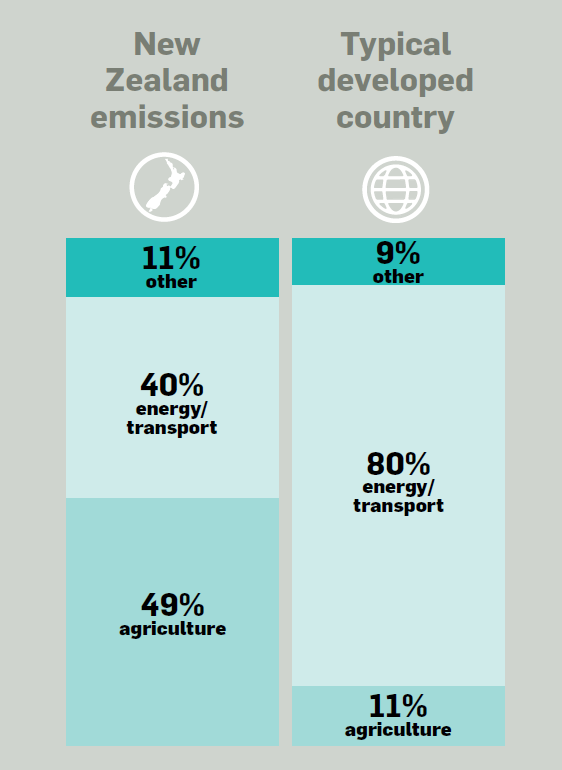News:
It’s the 23rd Conference of the Parties of the United Nations Framework Convention on Climate Change (UNFCCC) or COP23 for short. Thousands of people will attend COP23 to advance negotiations on the detailed rules to underpin the Paris Agreement. Our team of negotiators is from across government, led by the Ministry of Foreign Affairs and Trade.
Meet some of the Ministry of Foreign Affairs and Trade team heading to the next round of global climate change talks at COP23 in Bonn, and their views of the task ahead.
At COP23, New Zealand climate change ambassador Jo Tyndall is co-chair of the APA. This is the major group negotiating the proposals to be finalised at the next COP in Poland at the end of 2018. Follow the action at COP23 on Twitter @MFATgovtnz #COP23.
1. COP23 is another step towards the Paris Agreement
COP23 provides an opportunity to reinforce the vision of the Paris Agreement and progress action. The momentum remains strong and there’s a big global effort to take action – including at state, city and business level. At COP23, countries will work on the rules and procedures for the Paris Agreement to be applied from 2021.
2. We’re focusing our efforts
New Zealand is focusing on carbon markets, agriculture, forestry, and transparency:
- Transparent and high integrity international carbon markets that represent genuine emissions reductions, no matter where they occur.
- Climate-smart agriculture that improves efficiency, builds resilience and reduces farming’s carbon footprint.
- Clearer ways of accounting for carbon trading and the effect of planting and harvesting forests on our emissions.
- Consistent guidelines for measuring and tracking what countries are doing to reduce emissions.
We'll continue to work on levelling the playing field for renewable energy by pushing for the global phase-out of harmful fossil fuel subsidies that encourage wasteful consumption. We are also looking at how developed countries can do more through financial assistance and other support to help developing countries reduce emissions and be more resilient to climate change.
New Zealand is working with other countries at the Bonn climate meeting on making the Paris Agreement work.
3. Acting now means costs are lower
Global temperatures are continuing to rise as a result of greenhouse gas emissions from human activities such as industry, transport, and agriculture. We’re working with the rest of the world to limit global warming to well below 2 degrees above industrial levels and to strive for 1.5 degrees. If we don’t do this, the costs of responding to climate change (for example, building new and better infrastructure, recovering from cyclones and adapting to water shortages) will be much greater.
The good news is that acting on climate change doesn’t have to mean economic growth is stifled. Around the world, there’s evidence reducing emissions and growing the economy goes hand in hand.
4. We have different challenges
New Zealand generates almost 85 percent of our electricity and 40 percent of total energy from renewable sources. This means our energy emissions are lower than those of many other developed countries. Instead, almost half our emissions come from agriculture. In a typical developed country agriculture contributes only about 11 percent of total emissions.
Few options currently exist for reducing emissions from agriculture. This is why we are looking at how we can grow more forests to absorb carbon and offset our own emissions by buying reductions elsewhere through international carbon trading, and why we continue to invest in agricultural emissions research.

5. We need to think and act differently
Meeting our target will require changes to economic activity and a concerted effort to plant more trees. It won’t be easy – many other countries can take advantage of existing technologies to switch from fossil fuels to renewable energy.
The Paris Agreement includes the option of countries cooperating to reduce emissions – trading – and counting emissions reduced abroad. We have learned a lot from previous experience where cheap carbon credits from some international sources turned out to have dubious environmental integrity.
We are working with others within the Paris Agreement on setting up transparent and credible carbon markets so future offsets will represent genuine and high integrity emissions reductions. Carbon markets provide a backstop – the first option has to be reducing our emissions at home.
Ways you can help tackle climate change
- reduce, recycle, reuse
- drive less
- waste less
- plant more trees
- work with others
- get informed about climate change.
Related information
The Paris Agreement and UNFCCC
Paris Agreement(external link)

